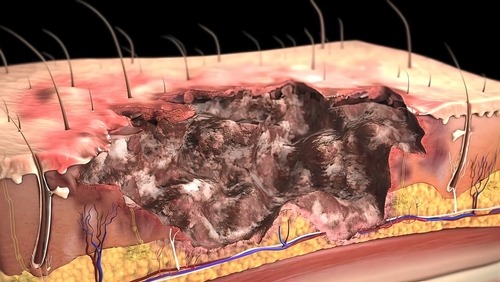Serious burns often require significant specialized medical care. If you have a serious burn, it is important to apply basic first aid and then to visit a care provider who can assess the extent of the injury, suggest medications if necessary and also evaluate whether surgery and physical therapy are needed to promote healing. In many cases, serious burns will require immediate professional medical attention.
In the short-term, after the affected area is cleaned, treatment for a serious burn may include intravenous fluids to help with dehydration, pain medication and topical creams to help prevent an infection. Additional IV fluids are sometimes also necessary to prevent organ failure. The care provider may use special wound dressings and IV antibiotics to treat the effects of the burn. In order to monitor recovery, significant time in the hospital may be required.
Long-term recovery often required
Long-term treatment may include physical therapy to increase strength and coordination and occupational therapy which can help burn victims regain the ability to do daily activities.
Some people also require skin grafts and plastic surgery. Care providers may recommend these options to improve the appearance of scars and help with joint flexibility. For mental health recovery, care providers may also recommend local support groups who can offer their shared experience to help victims overcome the significant emotional toll burn injuries can carry.
Causes of burns and possible financial remedies
Serious burns can be caused by major accidents, including those that occur at oil refineries as well as in vehicle accidents. When these accidents are caused by negligence, victims may be entitled to recover compensation for the lost wages, medical bills and the cost of the long-term care required to heal.
With the appropriate initial care and long-term support, burn victims can heal physically, emotionally and financially from these impactful incidents.
